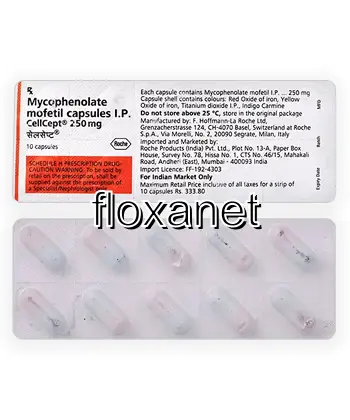Buy Mycophenolate Mofetil (Mycofenolate Mofetil) Online in Australia
| Package | Dosage | Price | Price per Dose | |
|---|---|---|---|---|
| Dosage: 500mg | ||||
| 30 pill | 500mg | AUD313.51 | AUD10.45 | |
| 20 pill | 500mg | AUD276.04 | AUD13.80 | |
| 10 pill | 500mg | AUD165.62 | AUD16.56 | |

Mycophenolate Mofetil Description
What is Mycophenolate Mofetil?
Mycophenolate mofetil is an immunosuppressant used after organ transplantation to help prevent rejection. It is offered in tablet form and as an oral suspension. The medicine lowers the activity of the immune system by reducing the production of certain white blood cells. This helps the body accept a new kidney, heart, or liver. It may also be used for some autoimmune conditions under specialist care. Your doctor will confirm if it is appropriate for you and adjust the dose if needed.
How it works
The active component inhibits an enzyme required for making DNA in immune cells. Without this enzyme, T and B cells cannot multiply as easily. The result is a gentler immune response. Because it mainly affects rapidly dividing immune cells, other parts of the body are less impacted. This selective action helps deliver effective protection when combined with other medicines used after transplant.
How to take
Take the medicine exactly as prescribed by your clinician. The dose and schedule depend on the transplant type, age, and other medications you take. It is usually given twice daily. Swallow tablets whole with a full glass of water. If you have trouble swallowing, ask your pharmacist about the suspension option. Do not chew or crush tablets unless your doctor tells you to. Some people take the medicine with meals to reduce stomach upset, but follow the directions on your label and from your doctor.
Consistency matters. Try to take doses at about the same times each day. If you miss a dose, contact your health team for guidance. Do not double up to make up a missed dose unless advised to do so. Do not stop the medication without talking to your clinician, even if you feel well. Dose changes occur slowly and are monitored by blood tests.
Who should not take this medicine
Pregnant women should not start mycophenolate mofetil. The drug can harm the developing fetus. Reliable contraception is essential for those who can become pregnant. Breastfeeding while taking this medicine is generally not advised, as the drug may pass into breast milk. Tell your doctor if you have a history of serious infections, active cancer, or certain blood disorders. People with severe intestinal disease or kidney problems may require dose adjustments or alternative therapy. Always discuss your full medical history with your healthcare provider before starting treatment.
Common side effects
Diarrhea, nausea, and stomach pain are common. Some people experience vomiting or reflux. Infections can occur more easily because the immune system is suppressed. Low white blood cell counts may lead to fever or sore throat. Liver enzymes might rise, so liver function tests are sometimes needed. If you notice unusual bruising, bleeding, persistent fever, or signs of infection, contact your medical team promptly. Seek urgent care for severe abdominal pain, severe diarrhea with dehydration, or jaundice.
Drug interactions and safety notes
Tell your doctor about all medicines you take, including over‑the‑counter drugs and supplements. Certain immune‑modifying medicines can interact and affect safety. Antacids containing aluminum or magnesium and some bile‑acid binders can reduce absorption of mycophenolate mofetil. Avoid live vaccines while using this medicine and discuss vaccination plans with your clinician. Pregnancy must be avoided during treatment and for a period after stopping the drug; barrier or hormonal contraception may be advised. Breastfeeding is usually not recommended. Your clinician will review all potential interactions and adjust doses as needed.
Monitoring and storage
Regular blood tests are common during therapy to monitor blood counts and liver and kidney function. Your doctor may adjust the dose based on test results and side effects. Store tablets at room temperature away from moisture and heat. Keep the suspension in its original container, shake well before use, and store as instructed. If you miss a dose, take it as soon as you remember unless it is close to the next dose time; do not double up without medical advice.
Pros and cons
Pros: strong, well‑established protection against organ rejection when used with other drugs; available in multiple forms to fit patient needs; can be part of a long‑term plan to maintain transplant success. Cons: increases risk of infections and certain blood disorders; can cause GI symptoms and liver function changes; requires careful monitoring and coordination with healthcare providers. The balance between benefits and risks depends on the individual patient and the transplant plan.